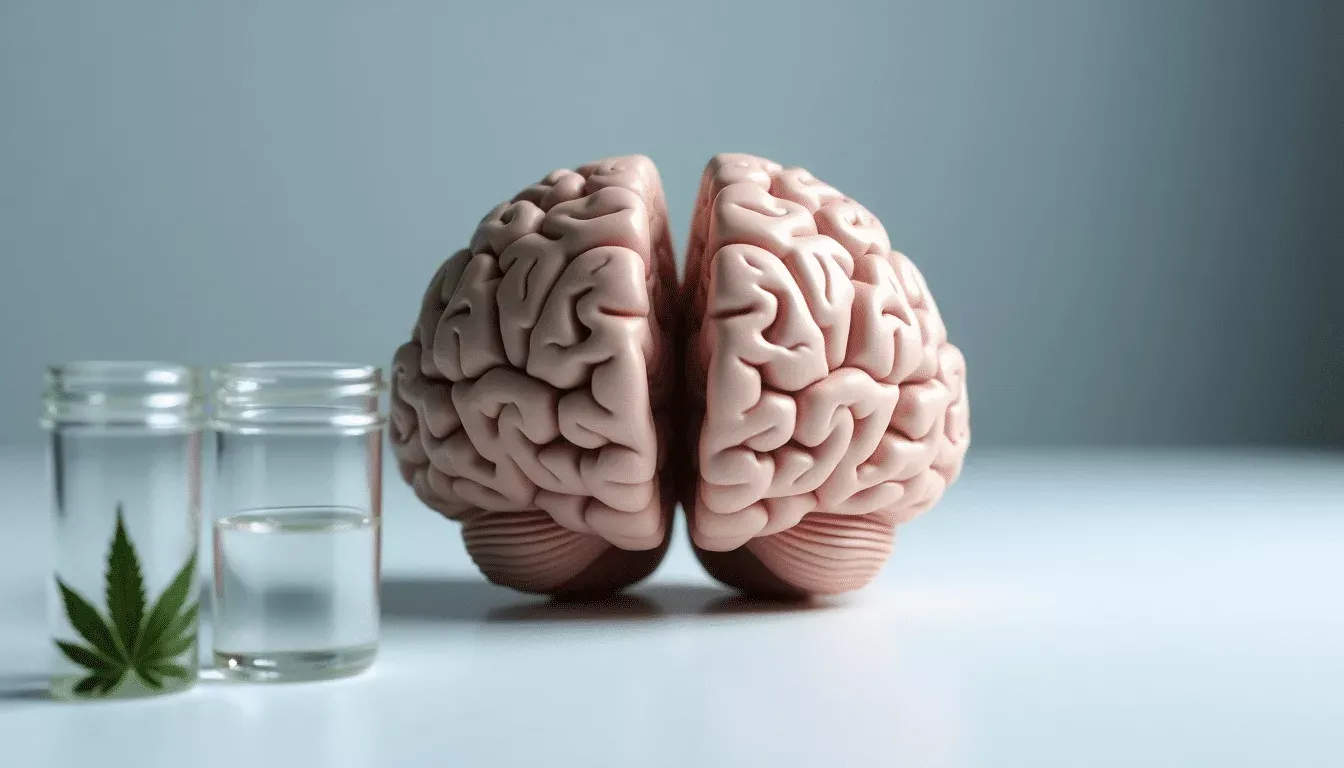Does CBD help to deal with menopause symptoms
Menopause is a significant transitional phase in a woman’s life, often surrounded by a myriad of changes both physically and emotionally. From hot flashes to mood swings, these symptoms can dramatically affect daily life, leaving many women searching for relief. Recently, CBD (cannabidiol) has emerged as a potential natural remedy garnering attention for its purported health benefits. But what role does it play in managing menopause symptoms? In this article, we explore how CBD could potentially ease the journey through menopause, providing insights and practical advice for those considering this option.
The Complex Realm of Menopause
Menopause marks the end of a woman’s reproductive years and usually occurs between the ages of 45 and 55. It’s defined by the cessation of menstrual periods for 12 consecutive months, but for many, the journey starts earlier with perimenopause. This transition can span several years and includes fluctuating hormone levels leading to a range of symptoms—hot flashes, night sweats, anxiety, sleep disturbances, and joint pain, among others. The intensity and combination of these symptoms vary widely, challenging each woman uniquely.
The root cause of menopausal symptoms lies in the decline of estrogen and progesterone, the hormones that regulate many bodily functions. This hormonal shift disrupts the body’s balance, giving rise to a host of physical and emotional changes.
Traditional management strategies for menopause often involve hormone replacement therapy (HRT). While effective for many, HRT is not without its risks, including increased chances of developing certain types of cancer. This has led many women to seek alternative therapies, ranging from dietary adjustments to herbal supplements. And there, among these options, CBD has emerged as a promising aid.
CBD: A Natural Ally in Menopause?
Derived from the cannabis plant, CBD is one of over 100 compounds known as cannabinoids. Unlike its more famous cousin, THC (tetrahydrocannabinol), CBD does not produce a psychoactive effect, making it an appealing option for those seeking relief without intoxication.
Research suggests that CBD interacts with the endocannabinoid system (ECS), an intricate network of receptors found throughout the body that plays a role in regulating mood, pain sensation, and immune response. This interaction could be key to understanding how CBD might influence menopause symptoms.
For instance, hot flashes and night sweats are common complaints, often disrupting sleep and increasing irritability. Some studies indicate that CBD can promote relaxation and improve sleep quality by influencing serotonin receptors and stress-related hormones. A study published in Neurotherapeutics posits CBD’s potential in treating anxiety by diminishing the physical and emotional distress associated with hormonal changes.
Pain and swelling in joints are also not uncommon during menopause. As an anti-inflammatory agent, CBD may offer relief by reducing inflammation, potentially soothing aching joints. While rigorous scientific studies are ongoing, anecdotal evidence abounds with women reporting notable improvements in managing their symptoms with CBD products.
How to Use CBD for Menopause Symptom Relief
The potential benefits of CBD are intriguing, but navigating its use can be daunting. With a vast array of products available, including oils, capsules, edibles, and topical creams, finding the right fit requires some experimentation and due diligence.
One of the most straightforward methods of taking CBD is through oil drops, typically placed under the tongue for fast absorption into the bloodstream. Start with a low dose and gradually increase until the desired effects are achieved. It’s important to note that individuals may respond differently based on body chemistry and symptom severity.
For joint pain, topical CBD creams or balms may be beneficial. These are applied directly to the affected areas, allowing localized relief without systemic effects. Some women also find that CBD-infused bath products offer a relaxing way to end the day, easing tension and promoting restful sleep.
Before incorporating CBD into your health regimen, consult with a healthcare provider, especially if you are currently taking medication or have underlying health conditions. They can guide you through potential drug interactions and provide personalized advice.
Moreover, quality control is crucial. The CBD market remains largely unregulated, with varying degrees of purity and potency. Always choose reputable brands that provide third-party lab testing results ensuring product integrity.
Taking the Next Steps
The conversation surrounding CBD for menopause management continues to evolve, driven by ongoing research and increasing anecdotal evidence. If you decide to explore CBD as a potential remedy, educate yourself, start slow, and pay attention to how your body reacts. Patience and open-mindedness can lead to finding a solution that works for you.
Engage with communities and resources that share similar interests in natural health remedies. Websites such as the CBD Women offer forums and articles on women’s health and CBD, providing support and shared experiences.
The journey through menopause is deeply personal, with no one-size-fits-all solution. However, natural alternatives like CBD provide promising pathways for those seeking relief from the turmoil of hormonal changes without resorting to conventional hormone therapies.
Conclusion: Embracing New Options
Menopause presents a unique set of challenges, but it also offers an opportunity to explore new horizons in natural health. As our understanding of CBD deepens, it is quickly cementing its status as a versatile remedy for a variety of ailments, including menopausal symptoms. By considering CBD, women gain another tool in managing this transition with comfort and grace.
Whether or not CBD is right for you, taking a proactive role in your own health during menopause is crucial. Explore different avenues, stay informed, and most importantly, listen to your body’s needs. If you found this article helpful, consider sharing it with friends or family who may also benefit from this information. Feel free to dive deeper into the world of CBD and menopause by accessing other related articles and resources.
FAQ: Does CBD Help to Deal with Menopause Symptoms?
1. What is CBD and how does it work in the body?
CBD, or cannabidiol, is a compound found in cannabis plants. It interacts with the body’s endocannabinoid system, which helps regulate various bodily functions, potentially influencing mood, sleep, and pain sensation.
2. Can CBD help with hot flashes during menopause?
Some anecdotal evidence suggests that CBD may help manage hot flashes by interacting with the body’s thermoregulatory processes, although scientific studies specifically on this are limited.
3. Does CBD assist with sleep disturbances common in menopause?
CBD is thought to have calming effects and could help improve sleep quality by reducing anxiety and pain, though more research is needed for conclusive menopause-specific findings.
4. Is CBD effective for dealing with mood swings during menopause?
CBD might help stabilize mood swings through its impact on serotonin receptors in the brain, potentially offering relief from anxiety and depression associated with menopause.
5. Are there any risks in using CBD for menopause symptoms?
CBD is generally considered safe, but it can interact with other medications and may cause side effects like dry mouth, decreased appetite, or fatigue. Consulting a healthcare professional before use is advisable.
Related: Gummies for Sleep, CBD Gummies for Sleep
Share this content:



